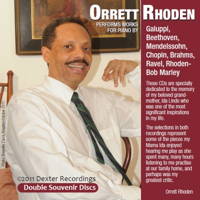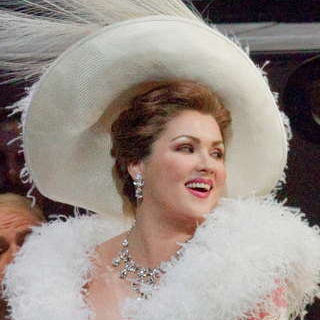- Nikolay Rimsky-Korsakov
- Charles Stanford
- Ildar Abdrazakov
- Wolfgang Gönnenwein
- Haydn
- vihuela music
- Ensemble Intercontemporain
- Juan Diego Flórez
A Family Portrait in Hell
GIUSEPPE PENNISI experiences an excellent 'Otello' at the Rossini Opera Festival
Otello is the 2022 Rossini Opera Festival's third opera. It concluded the operatic part of the event on the evening of 11 August: a magnificent conclusion, although there were reservations about the stage direction. The opera had not been seen in Pesaro since 2008, when an edition co-produced with the Opéra de Lausanne and the Deutsche Oper Berlin was presented. In Berlin, it entered the repertoire.
The plot is based on the first part and the end of Shakespeare's tragedy but takes place entirely in Venice. In the first and second acts, the noble Elmiro wants to marry Desdemona to the son of doge Rodrigo, but the girl has secretly married Otello. Iago hatches the intrigue that will lead to the tragedy. Rossini and Francesco Berio di Salsa also wrote a 'happy ending' for audiences in Rome and Florence, who did not like to leave the theatre in tears and were accustomed to 'serious operas' with a final rondo. In the nineteenth century (before Verdi's Otello appeared), the work was enormously successful. The silence must be attributed to the fragility of the libretto - the librettist Francesco Berio de Salsa certainly had neither the culture nor the style of Arrigo Boito - as well as to the vocal difficulties. Not the least of these was having three tenors to counterbalance a soprano of agility capable of both a reckless treble and very serious low tones.
The opera, in fact, was built for Isabella Colbran, eight years older than Rossini and later his first wife, who at the time had a ménage à trois with the young composer and the mature impresario Barbaja. Colbran was a rare 'amphibious soprano' able to reach a very high register and then descend to an almost alto one. To this real war machine, Rossini contrasted three tenors: one with a wide and flattened vocality sometimes almost Wagnerian (Otello), a contraltino of agility, with a texture from E flat to C sharp (Rodrigo), and a third with a dark timbre almost baritone but poured into belcanto (Iago).
In this Rossini Opera Festival (ROF) edition, Desdemona is Eleonora Buratto, one of the rare Italian sopranos who can reach very high tones and then go down to the very low ones. A great interpretation especially in the third act from the 'song of the willow' to the finale.
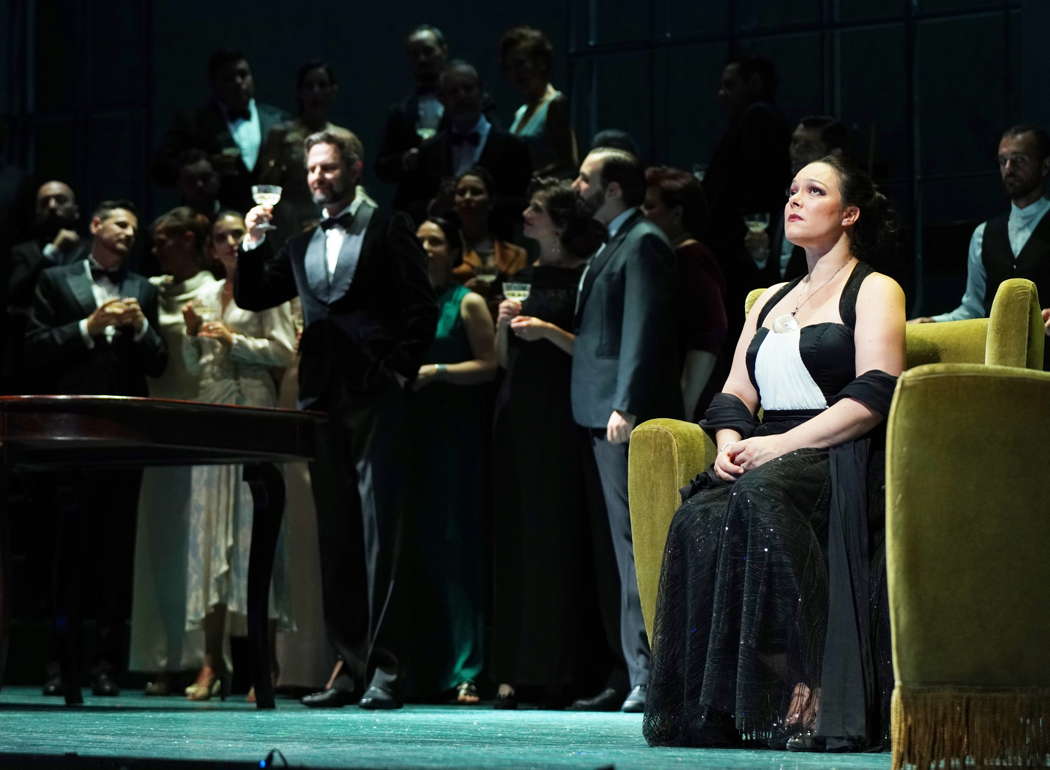
Eleonora Buratto as Desdemona in the Rossini Opera Festival's production of Otello in Pesaro. Photo © 2022 Amati Bacciardi
I remember that in a deservedly famous recording (with Jesus Lopez Cobos in the mystical gulf and José Carreras in the role of Othello), Desdemona was the famous mezzo Frederica von Stade, who had a very wide register that triumphed both in Claudio Monteverdi's The Return of Ulysses to His Homeland and in Richard Strauss' Der Rosenkavalier.
She is confronted by three tenors. Enea Scala (Otello) is a generous tenor, known almost more abroad than in Italy: he comes from the Accademia Rossiniana and is a sorrowful Othello both because, military and African, he is never really accepted by the world of politics and business in Venice and because, from the second act onwards, he has doubts about the fidelity of his bride. Dmitry Korchak (usually present at the ROF) is in the role of Rodrigo; with the belcanto. he shows his own fragility.
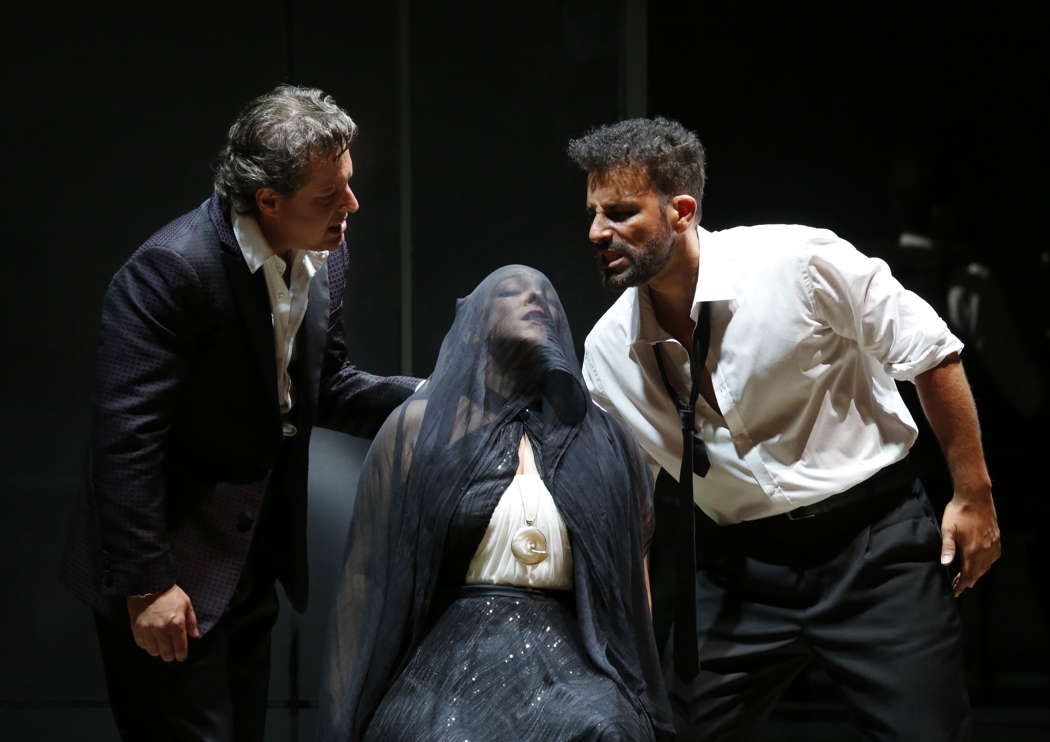
Dmitry Korchak as Rodrigo, Eleonora Buratto as Desdemona and Enea Scala in the title role of Rossini's Otello. Photo © 2022 Amati Bacciardi
Antonino Siragusa is a false Iago, slimy and mellifluous.
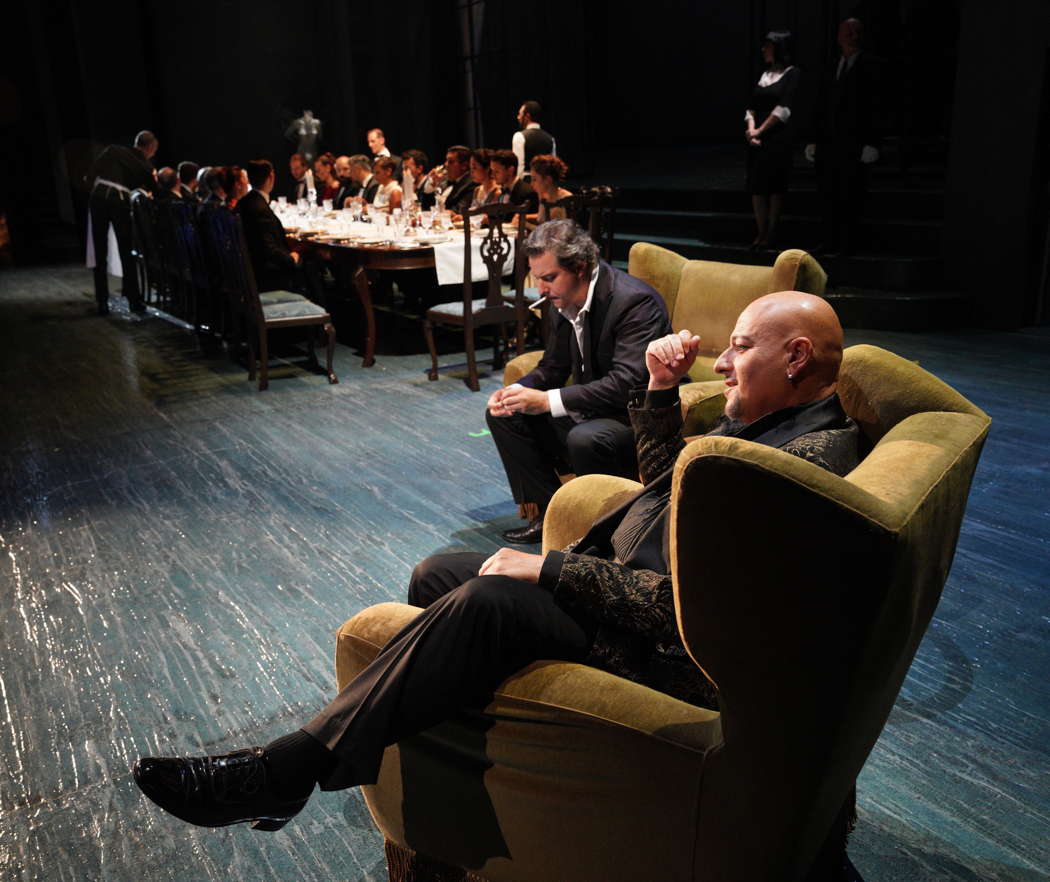
Antonino Siragusa as Iago and Dmitry Korchak as Rodrigo in Otello at the Rossini Opera Festival. Photo © 2022 Amati Bacciardi
Among the characters we can call minor, Elmiro by Evgeny Stawinsky and Emilia by Adriana Di Paola (also from the Accademia Rossiniana) stand out.
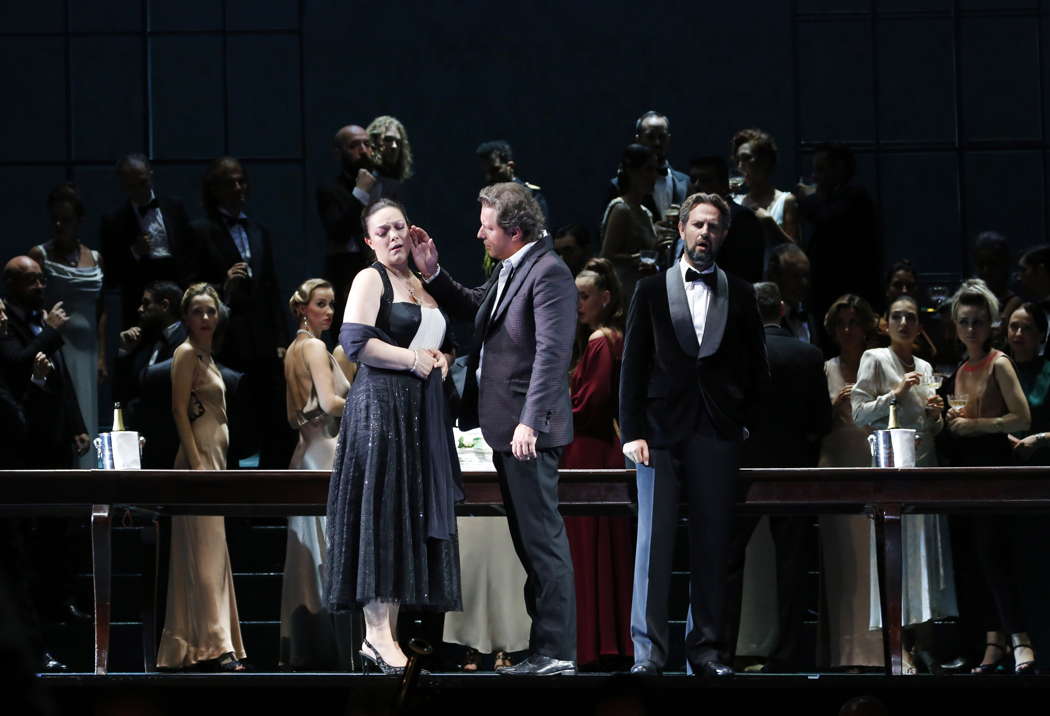
Eleonora Buratto as Desdemona, Dmitry Korchak as Rodrigo and Evgeny Stavinsky as Elmiro in the Rossini Opera Festival's production of Otello. Photo © 2022 Amati Bacciardi
The Rai Symphony Orchestra is conducted by Yves Abel with a muscular slant, very effective for the overall hold of the production but very different from the delicate cut usually attributed to him. The chorus of the Teatro Ventidio Basso prepared by Giovanni Farina was good.
Let us now come to the dramaturgical part - direction: Rosetta Cucchi; sets: Tiziano Santi; sculptural elements: atelier Davide Dall'Osso; costumes: Ursula Patzak; lighting: Daniele Naldi. The setting is contemporary: therefore, no luxurious Venetian Renaissance and no gondolas - even if you hear the voice of a gondolier from a distance. To evoke a film from many years ago by Luchino Visconti, we are grappling with 'a family portrait in hell'. Two themes are intertwined: the female fragility and the fragility of the man who, although full of decorations and honours, is and remains alien to the world around him. There is excellent acting and attention to details - for example, the women who, in the face of danger, take refuge in the kitchen.
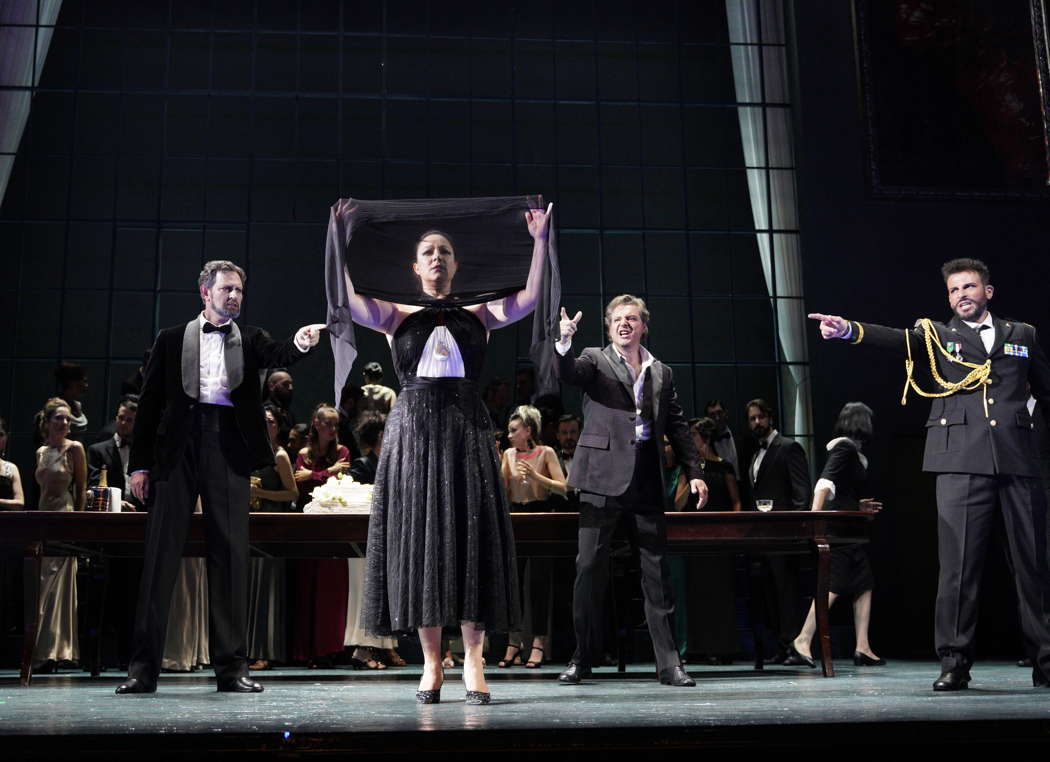
Evgeny Stavinsky as Elmiro, Eleonora Buratto as Desdemona, Dmitry Korchak as Rodrigo and Enea Scala in the title role of the Rossini Opera Festival's production of Otello. Photo © 2022 Amati Bacciardi
While the ROF 2008 Otello was co-produced with two major international theaters, I hope that this production will be invited by major theaters in Italy and abroad. The last opportunity to see and listen to the production this year in Pesaro is on 20 August 2022.
Copyright © 15 August 2022
Giuseppe Pennisi,
Rome, Italy

ARTICLES ABOUT THE ROSSINI OPERA FESTIVAL
CLASSICAL MUSIC ARTICLES ABOUT SHAKESPEARE


